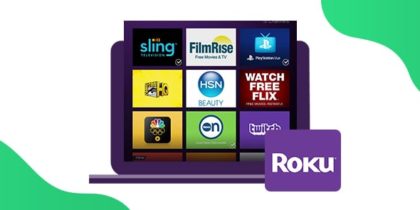“It’s not what you don’t know that gets you in trouble, it’s what you know for certain that just ain’t so.”
– Mark Twain
It seemed as if I couldn’t get past two conversations for months now without someone making an anecdote about The Social Dilemma. I never could join in on the conversation for the same reason why this review is coming out so late; I hadn’t seen the documentary yet. But as soon as I got the time and some persuasion by Netflix (keep this in mind, it’s an important factor further down this review), I started watching it. My immediate reaction at the end of the 94 minutes was…well, mixed. So, expect a different The Social Dilemma review than you’ve read elsewhere on the Internet.
It’s easy to understand why it’s gotten so much attention. The parallel form of storytelling, a mixture of truth and its application creates a captivating experience. In this case, we’re introduced to a regular American family that’s being manipulated and perhaps, ruined by the addictive tactics developed by social media companies. At the same time, we meet a plethora of individuals who give us insight into how and why social media has become this sticky and seemingly unavoidable part of our daily lives.
These individuals, or in terms of Silicon Valley lingo, techbros, are all former members of this quagmire called social media. As you’ll notice, each individual has had a monumental role in some of the most recognizable social media apps today, such as Facebook, Twitter, Instagram, Pinterest, Snapchat, and Google as well. They are (or were) part of the system, so there’s no doubt that they have some valuable insight. But that’s my first problem. While they identify the issues fairly accurately (since they’re somewhat complicit in creating the problem in the first place), they have nothing worthwhile to offer in terms of countering them. I assumed that since they’ve identified the issues with such intricacies, the solutions will be similarly nuanced.
But here’s what their solution to social media addiction looks like in a nutshell: stop using it, or at the very least, limit your usage. That is something I’d expect from an overprotective mother at a parent-teacher meeting at some high-school. This leads me to conclude that the people who’re supposed to know social media inside-out don’t really have any viable solution to offer. Either that or they’re terribly disconnected from how these apps are used by people other than teens and children.
Taking myself as an example, my work’s nature requires me to continually remain active on apps like Skype, Slack, and Gmail. Moreover, my editor works in a different time zone than me, so if an urgent piece needs to be written, reviewed, and published, I’ll likely be up till 3 AM. (Ed’s note: sorry.) Of all the excuses I could come up with, I don’t think my employer or my editor is going to accept, “I can’t be available at this time since I’m trying to limit my usage of these apps” as a valid excuse for not being available when needed (Note to editor: Will you? Ed: Let me think about it.)
Secondly, a couple of statistics did surprise me—the increasing suicide rates in teens and young adults being the most important one. However, after some research of my own, the sources seem to indicate various other factors involved in this spike. For instance, as the Washington Post reported, while teen suicide rates are up, it’s got more to do with changing social structures, lack of sleep, bullying, high-profile celebrity suicides, and yes, social media. Ironically, another major reason is the rise in the popularity of shows like 13 Reasons Why that glorify/romanticize suicide (I wonder who produced it…hint: It’s Netflix).
More importantly, the actual researcher who conducted the study that the WaPo reported, Ursula Whiteside, wrote in that same study, “The truth is anyone who says they definitively know what is causing it [teen suicides] doesn’t know what they’re talking about.” I’d love to hear from Ursula what she thinks about the fact that Netflix has created a 94-minute documentary claiming that they DO know what’s causing it. The Washington Post then goes on talking about other reports pointing towards social media. Still, it counters them in the same piece with more studies that conclude that social media is a positive influence for teenagers. Ironically, I found this one article more insightful on the topic than the documentary itself.
Hard To Disagree With
However, all that being said, there can be no denying that the documentary has touched on some critical points. For instance, the part about hate speech has become a lot louder and a lot more effective. And there’s the part about people (especially teenagers and children) developing unhealthy habits of not being able to live without their smartphones. Our over-reliance on these devices might be affecting how we interact with our families, friends, and others. The best part about the documentary is the parallel storyline about the family, created to reflect how these issues affect our daily lives.
Moreover, the “surveillance capitalism” part of the documentary is essentially the most important, and perhaps even the most controversial aspect of the documentary. As Dr. Shoshana Zuboff states, human emotions’ exploitation to create better market prediction models can lead to some dangerous repercussions if they were ever to be utilized by an authoritarian government. In other words, a mutant form of capitalism has taken hold and poses a threat to psychology. There is a slight problem with this too. The documentary focuses too much on the surveillance part and not the capitalism part. While that is a discussion for another day, one can easily argue that there’s nothing mutant about it since social media’s current business model has been prima facie since day one.
Verdict
So, should you watch The Social Dilemma? In short, absolutely. But, not with the expectations of hearing some extraordinary truths as the documentary’s trailer suggests. You should watch it to get an understanding of what social media’s most prominent critics have to say about the phenomenon. But I wouldn’t recommend placing too much emphasis on it. As Maria Farrell, considered one of the foremost experts in tech policy with more than 20 years of experience, once wrote in her essay, “The Prodigal Techbro,” these tech executives are lost souls that “suddenly see their former employers as toxic, and reinvent themselves as experts on taming the tech giants. They were lost and are now found.” Anyone who claims this kind of an awakening typically miss most of the actual journey, yet claim the moral authority of one who’s ‘been there’ but came back. It’s a teleportation machine, but for ethics”.
At the end of The Social Dilemma, you’ll find yourself asking if you’re truly addicted to your phone, to your apps, and whether you’ve become conditioned to behave a certain way as a result. These are important questions that we must all ask ourselves…before Netflix suggests another documentary we might be interested in…based on our viewing patterns. A perfect bit of irony.



